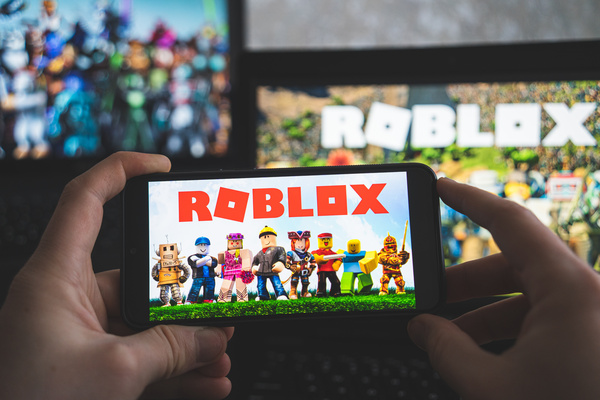Tips
Tune your day: real balance between fun, productivity, games
Learn how to balance fun, productivity, and games with practical strategies, lists, and scripts to adjust your leisure time and schedule, and maintain real results throughout your daily routine without overdoing it.
Advertisement
Finding time to have fun and be productive can seem challenging, especially when gaming becomes a part of your routine. Sitting down for a few minutes and losing yourself in your favorite game can bring lightness to daily tasks, creating a healthier cycle of motivation, enjoyment, and results.
Many see games as productivity killers, but using this resource wisely promotes well-being and focus. Between short sessions of fun, we return to work refreshed, and the line between playing and producing gains new definition.
In this article, we'll discover concrete ways to use the fun of games as an ally, without sacrificing deadlines or goals. Read on for realistic tips, scripts, and practical examples of balance.
Setting clear boundaries between leisure and obligations to ensure focus
Setting aside time for leisure helps protect productivity. Decide on precise times and amounts to dedicate to fun and productive games, writing them down on your calendar.
Setting aside time blocks brings mental clarity, as it prevents fun from crowding out obligations. Adopt fixed schedules and let your neighbors know what's a priority.
Creating a functional weekly schedule
Use a digital spreadsheet or paper to divide tasks into blocks and assign game sessions as small rewards. Don't rely on last-minute decisions.
"Today, from 6 PM to 6:30 PM, I'll play games" might be a simple example. This clarity prevents guilt and helps ensure the sequence of obligations.
At the end of the week, evaluate whether you followed through on your plan. If games interfered with your deliverables, adjust the number: swap 30 minutes for 20 minutes, for example.
Physical environment that reinforces the limit
Leaving controllers, headsets, and gaming apps outside the workspace creates a physical barrier. This allows the transition between focus and leisure to happen more naturally.
When you finish a task, get up, change your environment, and only then start the game. A simple gesture, like turning off your work monitor, marks this change.
This ritual, when repeated, trains the mind to associate space and body with different contexts, making it easier to return to focus after leisure time.
| Category | Responsible Leisure | Irresponsible Leisure | What to do |
|---|---|---|---|
| Duration | 30 minutes per session | 2 hours without a break | Set it to 30 minutes and take scheduled breaks |
| Time | After main tasks | Interrupts urgent activities | Schedule games at the end of the day, not in the middle |
| Game Type | Light games | Competitive games that generate stress | Choose relaxing experiences during breaks |
| Environment | Place reserved for leisure | Shared place with work | Physically separate leisure and work areas |
| Posture | Sitting comfortably | Standing, lying on the sofa | Use a suitable chair to avoid discomfort |
Transform simple habits to improve immediate results
Changing small daily actions allows fun, productivity, and play to coexist without conflict. Adopt quick routines to decompress, without turning breaks into chronic procrastination.
A practical example: whenever you're about to play, activate a timer and leave it visible. The audible signal naturally delimits the playtime cycle, and with repeated practice, respecting the end of the time becomes automatic.
Creating beginning and ending rituals
Developing transitional microhabits, like closing work tabs before playing, helps your brain understand that the dynamics have changed.
- Close work apps before opening games — avoid distractions and reinforce boundaries.
- Activate a visual reminder, such as a colored light, to signal leisure time, so that boundaries are clear to everyone.
- Put your phone on silent mode to avoid mixing work notifications with game time.
- When you finish the game, quickly jot down what you'll do next to quickly regain focus.
- Use relaxing soundtracks during leisure breaks to regulate stress levels and facilitate a return to productivity.
Practicing transition shortcuts prevents that post-game feeling of distraction, where it's easy to lose track of time and delay important tasks.
Best practices for dealing with the urge to keep playing
Feeling the urge to keep playing is normal. Write down, "I want to get back to playing after I answer emails," for example, and focus on the next task.
- Remind yourself of what needs to be done after your break — write it down on paper or in an app.
- Avoid promising yourself “just one more round” by saying out loud, “The next round won’t be until the end of the day.”
- Set aside bigger rewards for weekends so the urge to play longer is controlled throughout the week.
- When you feel anxious, take a deep breath—counting to five can calm you down and make it easier to return to your routine.
- If possible, schedule game sessions with friends only at pre-defined times, avoiding improvisations that compromise deliverables.
These little commands help you organize your thoughts and limit impulses, protecting your daily goals without sacrificing fun and productivity.
The role of self-knowledge in daily cycles of leisure and results
Recognizing your own patterns is essential to adjusting fun and productivity games to your specific needs. Pay attention to the times when you feel most productive or distracted by games.
Conscious evaluation of one's own performance after playing
After a leisure session, observe whether you returned to work feeling excited or distracted. Briefly describe the immediate effects of the game on your concentration.
These records act as a thermometer: if you notice a drop in performance, reduce your fun time until you find a balance.
Get into the habit of writing down impressions: “playing for 30 minutes made me feel refreshed” or “a hectic game made me tired,” so you notice real patterns instead of assumptions.
Identifying ideal intervals
No one responds the same way to stimuli. Experiment: alternate leisure periods before lunch, in the afternoon, or in the evening. See how it affects your mood and productivity.
Validate what works for you with small weekly changes. A simple adjustment, like varying the type of game or scheduling leisure time after more difficult tasks, can transform your relationship with time.
This constant self-observation creates autonomy — you decide what really fits into your routine for fun, productivity, games, and staying healthy.
Practical strategies to avoid procrastination during leisure time
For those who pride themselves on discipline but find themselves stumbling into excessively long breaks, simple strategies come into play. By identifying procrastination triggers, you limit the negative impact of excessive leisure time.
Implementing small goals in game sessions
Establish clear rules, for example: "I only play until I pass a level" or "I stop after winning three rounds." This defines a true beginning and end for leisure.
Celebrating small victories within the game, without prolonging them indefinitely, helps maintain balance. Focus always returns to the next task of the day.
If you find yourself unable to stop, change the type of game. Choose quick, non-competitive experiences or times when you have other commitments immediately following.
Checklist to identify signs of procrastination
Create a list to quickly refer to whenever you feel the urge to play longer than planned. Include questions like: "Am I putting off an important task?" or "Have I exceeded my leisure time today?"
Having this checklist handy makes it easier to make objective decisions. Every time the answer is yes, close the game and focus your energy on completing what's left for the day.
With discipline, fun, and productivity, games become allies in your routine. Each week, write down your successes and adjustments, reviewing what needs to be changed.
Adapting the routine according to different demands and contexts
Unexpected changes require flexibility. Adjusting leisure time to fit deadlines or commitments avoids frustration and keeps play a positive resource, not a stressor.
Weekly analysis of priorities
Each week can bring different urgencies. Always check your calendar on Sunday, marking the most favorable times to invest in guilt-free fun, productivity, and games.
Don't stick with the same schedule if you notice repeated delays or feelings of overwhelm. Reorganizing your leisure blocks shows maturity and respect for your own process.
Small adjustments, such as moving games to off-peak times or swapping them for light activities during busy weeks, can make your relationship with your routine more flexible.
Examples of rapid adaptation
If an extra project comes up, tell your family: "This week, I'll only play on the weekend to get everything done on time," so that aligning expectations becomes natural.
When you feel tired, replace long games with a short logic game that relaxes without requiring energy. This change adapts fun and productivity games to the current context.
These quick decisions prevent frustration because they respect boundaries and restore balance, showing that flexible fun is not the enemy of results.
Ending the day's cycles with satisfaction and planning
At the end of the day, mentally review your choices: evaluate how fitting fun, productivity, and games gave you a sense of accomplishment, or whether there are still things to adjust tomorrow.
Revisiting the order of activities or trying new leisure breaks can be crucial for waking up feeling more motivated. Satisfaction arises when leisure and productivity converge in a relaxed, adaptable routine.
Set aside two minutes before bed to schedule your next cycle. Write: "I play tomorrow at 7 PM, work until 9 PM," ensuring realistic boundaries and clear expectations.
Trending Topics

See Norwegian Air Tickets and travel from €44.13
Escape to stunning destinations without breaking the bank! Discover Norwegian Air's unmissable flight deals!
Keep Reading
Vacation Rentals for Couples: The Perfect Choice for Romantic Getaways
Discover how vacation rentals for couples can transform your romantic trip into an unforgettable experience.
Keep Reading
Latam tickets through Chile: Fly with up to 55% discount
Explore the charm of Chile with Latam Flights! Discover stunning landscapes, rich culture and adventures.
Keep ReadingYou may also like

How to Stand Out on Roblox: Foolproof Strategies to Shine in the Community
Discover how to stand out on Roblox with practical tips for players and creators and gain a foothold in this world of opportunities.
Keep Reading
Vacation Rentals for Remote Work: Choose the Best Option for Digital Nomads
Freedom, flexibility and infrastructure for remote work: discover why vacation rentals are the best option for digital nomads.
Keep Reading